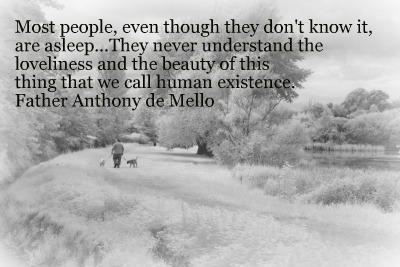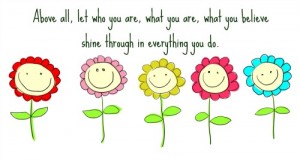We careesy-coachy-helpery-trainery-people types talk a lot about being or sitting in alignment with your values: knowing who you are, and living authentically.
A lot, lotta, lotta, lot. Mega amounts.
But there’s good reason.
See, they play a great big whooping part in every area of your life, career, business, family, relationships — the whole picture.
Lots of people can state what’s of importance to them, and what they value but not always know their core values.
There’s a difference?
Yes.
Explain.
Okay.
Well, some people weigh up all their values as being of equal value, with no priority.
Example: The happiness of a child (yours even) being given the same value or weight as being able to eat my favourite cake when I want, is not the same.
Let me show you what I mean with a game:
All you need to do is agree or disagree.
Think about them for a few seconds first.
Can you sit on the fence?
Nope. It’s my game. So play fair.
Ready?
Do you agree or disagree with the following statements?
- It’s okay to go to bed without having brushed your teeth.
- Same sex marriages should be legal in every country worldwide.
- It’s totally acceptable to pick your nose in a public place.
- Life should mean life in a prison sentence.
- An eye for an eye. A tooth for a tooth.
- Eye contact must be made at all times.
- Money doesn’t buy happiness.
- All politicians are liars.
- All religions cause wars.
- It’s survival of the fittest.
Whether you agreed or disagreed will depend entirely on your value system.
Our values are a little bit like an internal navigation system. Guiding and leading.
They are a system in perfect working order: (I didn’t say effective because sometimes they aren’t), working even now as you read this they’re the central HQ of how you choose and what you decide, how you behave & how you act.
Core values underpin how you live your life.
They assist you to answer, ‘Who am I?’ and ‘What do I stand for?’
They are unspoken rules and regulations, terms and conditions by which you have agreed to and ultimately live by.
Whether or not you consciously consult or are aware of them isn’t important, they are the captain of what you do, what you believe as the truth.
Some will serve you, others will hinder you.
Some will be glued and fixed rigid, unmovable, others more fluid.
Some were handed down to you, others you learned along the way.
Some will have changed over time, others will have grown stronger.
You may find when they are being challenged by others, you’ll defend them.
Sometimes, you’ll be swayed by the values held by others and amend your own, or refuse and deepen yours even further.
You’ll look around (sometimes unconsciously) to seek evidence that your values are the right ones.
Where do they come from?
Oh, we could be here for a-g-e-s.
A start…you’ll have been shaped by your upbringing: where you were raised, how you were raised, what you experienced. Some are social, some are political, others are cultural. You may hold values that are swamped in history: values held by your ancestors, that have been handed to you down through generations.
Seriously?
Yep.
They will have been gathered via your beliefs and norms, you will have learned your values from what was acceptable and non-acceptable in your schools, playground, and workplaces.
You have been conforming and forming your values for years.
You will have placed a value base on almost every area of your life.
Is there a difference between values and core values?
They are deeper.
Much deeper.
Finding them, or identifying them isn’t too hard. Look for what triggers a very strong emotion in you (anger, love, hate, jealousy) there will probably be a link to a core value wrapped up there (the workbook will help).
Here’s an example of how deep our core values go:
For the best part of ten years, I wrote and delivered a 6-week program for individuals wishing to enter the role of Support Worker (supporting other people who required support).
For this role, the person had to have strong core values surrounding equality, inclusion, person-centred working, respect, dignity, diversity, empathy…just for starters.
Asked at the interview, ‘Why do you want to work as a Support Worker?’
80% of the time the answer was to help people.
80% of the time that usually wasn’t enough.
Why?
Core Values
Having answered that question I would then ask questions about the actual role such as:
How would you support someone with high support needs, who uses a wheelchair and wants to go rock climbing?
How would you support someone taking a bath?
Core value-laden questions.
When an individual would reply to the wheelchair question something along the lines of ‘well, they wouldn’t be able to’ or ‘I’d try and find something else for them to do’ or ‘tell them they couldn’t maybe take them to a local park instead‘.
Those answers gave so much away about their core values: about freedom, choice, opportunities, and equality. The values just weren’t there.
The bath question, if someone replied ‘test the water’ or ‘would I have to do that?‘ again, a clear indication of the persons’ core values. No mention of dignity, respect, the right to privacy.
Can you see the difference?
See, you can pretend for a while, but ultimately your core values will be exposed.
What about your life, career, business?
I believe knowing your core values helps you make better decisions, better choices.
They are your guide, your map, and compass.
- If one of your core values is authenticity, how would you feel working in an environment where everyone wears masks, back stabs, gossips, and comments?
- If another was family time, how would you feel if you worked in an environment where it was expected you would work late, put in extra hours, work overtime?
- How about if one of your core values was to be treated with respect and dignity, and yet your boss was a tyrant a belittler, an aggressive monster, or your partner ignored you on a regular basis?
They do matter.
To live a life 24/7 where you aren’t ‘in alignment’ with your core values is challenging.
- Perhaps one of your values is independence and freedom, how do you feel when someone makes decisions (even when it’s well meant) about your life without your consent?
- Maybe one of your core values is honesty and integrity, what happens when you find someone has been lying to you?
Coach yourself
Discover your core values. Know them, learn from them, embrace the ones that serve you, move away from the ones that do not serve. They will show you why you behave and act in certain ways. They will have you manage conflict and see other people more clearly. They will shine a light on what really matters to you. They will explain to you why you feel what you feel.
If you want to read more and purchase the Core Values Workbook click here.

 You can find Theresa at smartmarketingsmallbusiness, follow her on Twitter
You can find Theresa at smartmarketingsmallbusiness, follow her on Twitter 








 Here’s a little something for you…’cause you’re worth it!
Here’s a little something for you…’cause you’re worth it!